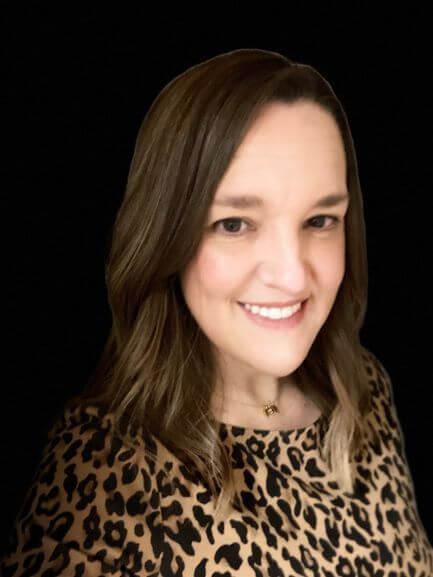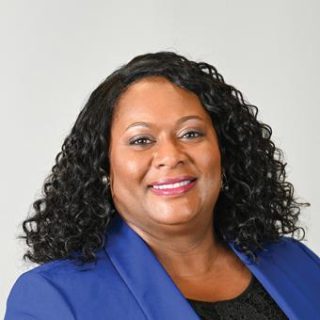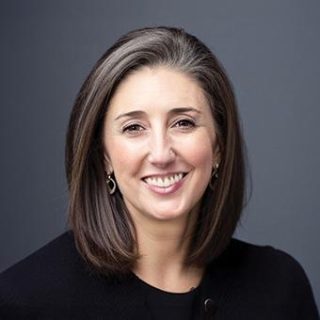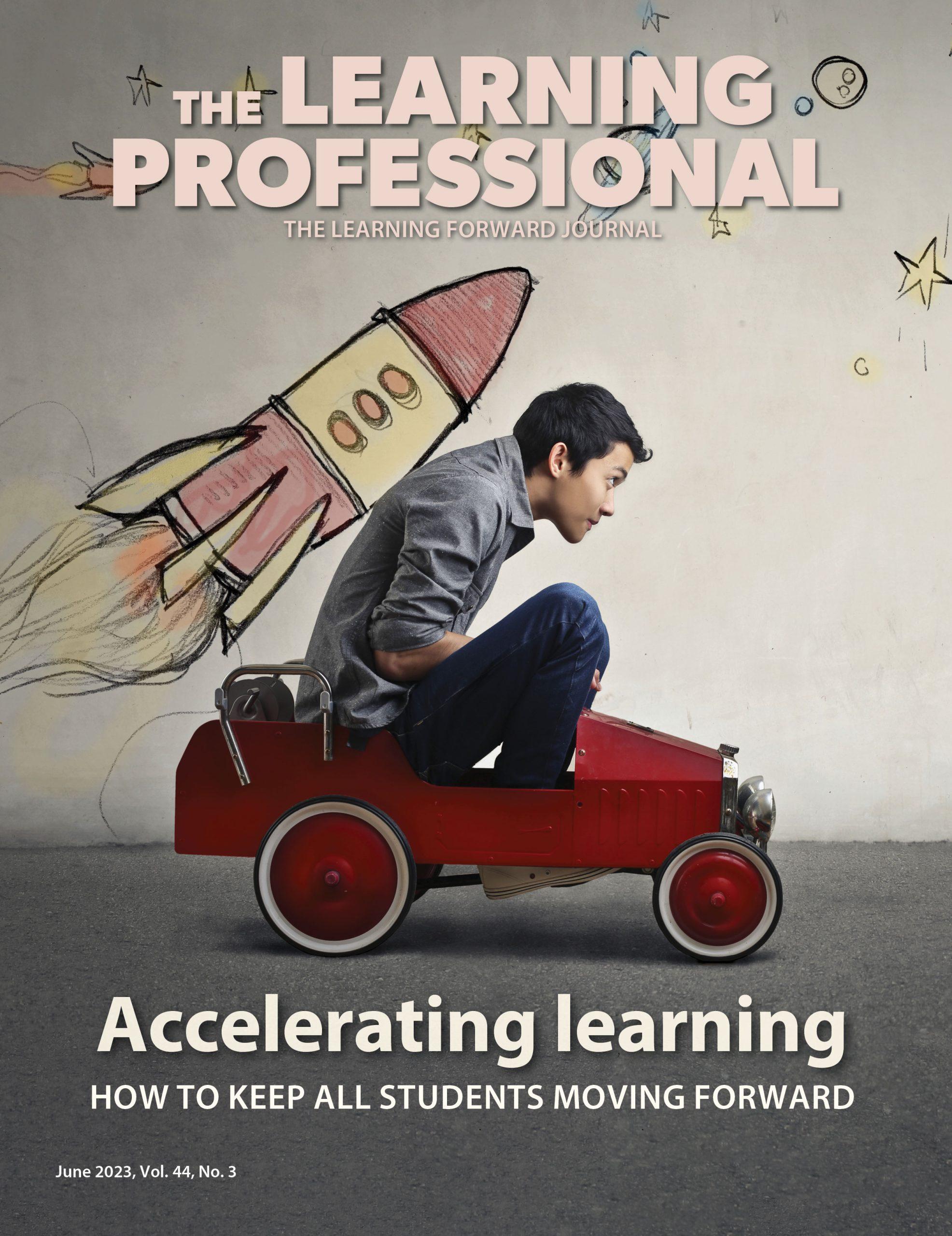FOCUS
In professional learning for coaches, one size doesn’t fit all
By Kathryn Murrow and Betsy Leis
Categories: Career pathways, Coaching, Learning systems/planning, PersonalizationApril 2022
Although instructional coaches are deeply committed to continuous improvement, they rarely have access to professional learning themselves. Rarer still is differentiated professional learning that meets coaches where they are in their careers and their professional growth.
In Florida’s Orange County Public Schools, we recognized that, just as we accentuate the importance of differentiated instruction for our students, we need to design professional learning to provide instructional coaches with strategies and structures tailored to their needs and levels of experience.
We created differentiated professional learning that is grounded in the district’s teaching and learning framework. It uses scaffolds and accelerated learning principles to improve instructional support and is designed with adult and student social and emotional learning (SEL) needs in mind.
At the same time, we recognized an opportunity to foster school administrators’ coaching knowledge and skills. Administrators play a different role in instructional improvement than coaches, in part because they have evaluative responsibilities. But they can and should embed coaching practices and systems in their work with teachers. This can help them model best instructional practices and, just as importantly, support a culture of continuous improvement.
Administrators can model best instructional practices & support a culture of continuous improvement by embedding coaching practices & systems in their work w/ teachers. #TheLearningPro Click To TweetWe designed administrator-focused professional learning that aligns with the coach-focused professional learning and allows administrators to coach the teachers they evaluate, keeping their adult SEL needs in mind, to promote high-quality instruction that attends to student social and emotional needs.
Aligning all these pieces — the evaluation framework, coaching support, and administrators’ support — is essential, and it can be a challenge in a district the size of ours, which serves over 205,000 students and employs over 13,000 instructional personnel. Our professional learning structures enable us to share a unified message on the standard for instruction.
Our focus: Instructional practices grounded in SEL
To ensure that the coaching — from both coaches and administrators — is aligned with district goals for student outcomes, the professional learning focuses on implementing coaching cycles using the district’s evaluation framework. Our district refers to the framework as the vision of instruction, and our evaluation systems team uses this core document as the driving force behind our work and professional learning for instructional and administrative personnel.
Historically, many educators have viewed teacher evaluation frameworks as separate entities from daily instructional practices in classrooms, begrudgingly accepting them as a requirement but not viewing them as helpful resources. Too often, the frameworks are looked at intermittently throughout the year at best, typically right before a teacher is being observed or only when outlining an action plan at the beginning of the year.
But in Orange County Public Schools, we see the evaluation framework as the backbone of our work. The vision of instruction lays out the expectations for teachers and therefore drives how we observe and evaluate teachers. It makes sense, then, that it should also drive coaching and other forms of professional learning.
Having this vision of instruction so deeply entrenched in our district promotes alignment among teachers’ planning efforts, professional learning, instructional delivery, and observations that result in a final evaluation score. This eliminates a disconnect between evaluation and everyday pedagogical practices.
Our approach also intentionally addresses the SEL needs that have become pronounced since the start of the COVID-19 pandemic. We emphasize why and how coaches and administrators should attend to teachers’ SEL needs — for example, by leveraging social awareness to understand the demands teachers are facing and how these demands impact their interactions and behaviors. We recognize that educators cannot model SEL competencies or expect their students to acquire these skills if they have not received adequate experience embodying them and understanding their importance in establishing an optimal learning environment.
We also address student SEL needs with our coaches and administrators. We provide them with tools and structures they can introduce to their teachers to integrate student SEL needs into planning and instruction. This promotes teachers deconstructing standards and evaluation framework elements they are using to determine the appropriate SEL competencies students must personify to be successful in their acquisition of standard concepts.
Our approach: Differentiated support
While the frame of the professional learning is consistent for everyone, we differentiate the specific focus and activities so that coaches and administrators are engaged in learning that is appropriate to their experience and knowledge.
Our introductory offering is catered to emerging coaches — instructional staff who have completed or are in the process of completing the district’s Facilitative Coaching Series. These participants may be coaches or curriculum resource teachers who want to develop their fundamental coaching knowledge as they leverage their instructional leadership skills.
Our advanced coaching option is extended to participants who have completed the Facilitative Coaching Series and have completed or are in the process of completing the district’s Advanced Coaching Academy, our instructional coaching certification program offered in partnership with the University of Florida Lastinger Coaching Institute. These coaches have extensive experience in conducting coaching cycles coupled with a strong grasp of pedagogical knowledge that allows for a more specific and focused approach to coaching practices and structures.
Finally, our administrator offering is targeted to assistant principals because, in our experience, the best administrators are those who implement coaching practices, allowing them to effectively provide support and feedback to teachers as they evaluate their instructional delivery throughout the year. This learning opportunity is offered through a district-based principal preparation program that enrolls assistant principals.
A notable benefit to our instructional design is that it allows a participant to engage in all three professional learning opportunities throughout his or her career, with each opportunity catered to the participant’s specific role, knowledge, and responsibilities. As participants advance through district-provided instructional coaching prerequisites, they can simultaneously advance through our professional learning offerings.
This provides paramount parallel support and resources for these educators as they support teachers and allows them to seamlessly transition into an administrative role with a robust coaching lens, as many of our coaches’ next steps in their progression of leadership is to transition to a school leader or district administrator role.
Here we explain the content of each of these tracks, including each track’s main deliverable: an artifact generated by participants as a result of the learning that demonstrates mastery of content and application of learning in a relevant context. We summarize the highlights in the figure below.
Emerging coaches
Emerging coaches participate in Coaching Classroom Instruction Through the Framework, where they make explicit connections between the district’s evaluation framework and formative coaching cycle. After engaging in a simulated coaching cycle with fellow coaches, they replicate that process with a teacher at their school.
The fundamentals of social and emotional learning rooted in the CASEL framework (CASEL, 2017) are intentionally embedded into the professional learning, both from an adult lens and a student lens. This allows for coaches to model appropriate SEL competencies in their conversations and provides guidance for teachers on explicitly planning instruction for student SEL needs.
Our district evaluation framework highlights instructional strategies aligning to SEL competencies, showing our teachers how social and emotional learning is embedded into classroom practices and must be considered when planning.
At this level, coaches conduct a coaching cycle with a teacher and document it. They use our district’s coaching observation tool, which incorporates our evaluation framework from a nonevaluative coaching lens, and provide feedback on dominant instructional strategies observed. They also generate a reflection so they can process the experience and refine their structure for continued implementation.
To provide feedback for coaches, we generated an implementation and impact survey that solicits teacher feedback on the coaching cycle and their perceptions of how it is likely to impact their instruction and future practices. Our team reviews these observations and provides additional actionable feedback so that coaches also experience being coached.
The biggest takeaways are the fluency our coaches build with their knowledge of the evaluation framework and supporting teachers in effectively using the framework and their increase in actionable, objective feedback aligned to our evaluation framework.
Advanced coaches
Advanced coaches have a working knowledge of the coaching cycle, so we are able to engage them at a deeper and more specific level. This advanced learning, Coaching Classroom Instruction Through the Framework for Advanced Coaches, provides instrumental opportunities for coaches to shift their perspective to a leadership lens, identify their own leadership styles and strengths, and build relationships with their administrators when engaging in the coaching cycle, a benefit for coaches who want to take the next step in leadership.
The main focus of learning for advanced coaches is to develop and refine data-based structures to substantiate the deliberate practice process within their schools. This process involves selecting an instructional strategy within the evaluation framework and deliberately and continuously engaging in growth using that strategy. All teachers engage in the deliberate practice process throughout the year as a requirement for their final evaluation.
We home in on this process because it’s required for all teachers and can therefore be used as a gateway for our coaches to work with resistant learners. The objective nature of data provides a nonthreatening avenue for growth mindset and eliminates the bias and critical nature of observations that might have been previously present for reluctant learners.
Data is difficult to refute, so we encourage our coaches to approach reluctant or hesitant teachers emphasizing objective data to establish collective responsibility and mutual trust. To this end, we support advanced coaches to develop their skills in data analysis and application.
Before attending, advanced coaches complete a data synthesis report so they can learn to aggregate evaluative data and conduct classroom observations to determine macro- and micro-level trends that will inform future decisions.
We teach them to use a data triangulation methodology, in which they determine trends through multiple data sets (teacher evaluation data, qualitative and quantitative classroom observation data, and SEL data through districtwide surveys). This practice encourages objectivity and should be more common, but we have not seen it implemented with fidelity in the district.
We also support the coaches to use SEL competencies while completing a mock scenario of a critical conversation with administrators to advocate for teachers. Many of our coaches tell us that they do not usually have structured safe practice opportunities to engage in critical and often uncomfortable dialogue that is crucial in their role.
As they engage in the role-play, they are able to see and hear what adult SEL competencies look and sound like in various contexts. We encourage them to consider their teachers as they engage in this process — to apply the learning to the people they know and are supporting so that they can glean as much relevant practice as possible from the activity.
The final piece is a coaching cycle with a teacher focusing on the deliberate practice process. The coaches post their observation data and actionable, objective feedback in our observation system, where we access their feedback and provide support. We also require them to document a candid conversation with their administrator, explaining their leadership style uncovered in our learning. We encourage them to partner with their administrator for support in cultivating their identified strengths as they replicate these coaching cycles.
Administrators
Coaching Classroom Instruction Through the Framework for Administrators shows aspiring principals how they can integrate coaching cycles into their evaluative processes and use those best practices to help their teachers grow, simultaneously establishing a culture of trust within their schools.
We link the coaching cycle components to the specific components of a formal evaluation, showing how they do not need to be separate processes or entities when enacted correctly. By showing assistant principals how to coach teachers through the preconference, observation, data analysis, and post-conference processes, they are able to synthesize coaching practices with their evaluative role.
We provide them multiple role-play opportunities with their peers so that they are able to safely practice the structures through various lenses, understanding the impact of this integration from both a teacher and administrator perspective.
This particular professional learning opportunity homes in on trust and shared ownership, both integral to coaching as an administrator and ensuring that the process is carried out with fidelity. This encompasses a heavy emphasis on SEL competencies and conversations where administrators may be shifting their role on a continuum from expert, to colleague, to mediator of thinking, all while keeping adult SEL needs at the forefront of those conversations to promote trust, shared ownership, and positive relationships throughout the dialogue.
Administrators conduct a simulated virtual classroom observation and practice making a data display based on their observations, a first for some assistant principals with no coaching background. This prepares them to replicate the process with their teachers as they conduct observations throughout the year.
Assistant principals leave excited to implement coaching practices within their required evaluative observations, knowing that their intentional focus on coaching will allow them to build positive and lasting relationships with their teachers and help them cultivate a growth mindset throughout their campus.
Implementation and impact
One standout practice of our department is that participants leave every professional learning experience with a document providing an overview of how the learning acquired may be transferred to their role. This allows participants to conceptualize the application of knowledge.
''One standout practice of our department is that participants leave every PL experience with a document providing an overview of how the learning acquired may be transferred to their role.'' #TheLearningPro Click To TweetWe also send this document to all participants’ supervising administrators. We want administrators and executive leaders to understand what their instructional and administrative personnel learned and how they are able to apply it in their role to support and encourage them as they engage in the application process.
While the first page of the document outlines how the participant may apply his or her knowledge, the second page outlines specific leadership moves administrators can take to support implementation of the learning. We link these leadership moves back to evidences within the school and district leader evaluation frameworks so that, as administrators and executive leaders support participants, they provide evidence of their leadership skills.
We solicit feedback after every professional learning opportunity. Feedback from coaches indicates that they are continuing to find innovative ways to leverage SEL competencies with the adults they work with to build trusting partnerships that will positively impact students.
One coach articulated how she uses social awareness by asking each of the teachers she works with how they best interpret data and how they would like their data displayed when being provided feedback from classroom observations.
By taking in their perspectives on feedback representation, that coach is also developing positive relationships and able to practice her own responsible decision-making through making reasoned judgments on how to represent data for various teachers.
Multiple coaches described how they demonstrated self-awareness, changing their questioning techniques and stems for various teachers based on their interactions and the coaches’ observations about the teachers’ receptiveness to feedback.
By altering the way they posed questions, the teachers each received support catered to their knowledge and needs, resistance declined, and they were able to move forward in their coaching cycle, implementing the necessary strategies and shifts to see instructional change.
We are also able to measure the impact of our professional learning opportunities through our district’s observation system because the professional learning is aligned with the evaluation framework and observation process. For example, if a coach chooses to work with a teacher on his or her deliberate practice process, we are able to see the observations and feedback surrounding that instructional strategy, and we are also able to see how the assessing administrator rated that teacher in formal and informal evaluations to determine the effectiveness of support.
A coach’s work is never done, and neither is ours. We continue to explore ways that we can support our instructional coaches and administrators as they work alongside teachers to increase the quality of instruction, attend to the social and emotional needs of students and staff, and improve the climate and culture of their schools.
Amidst current challenges, it is critical that our schools and classrooms evolve as communities where everyone feels welcomed, supported, and safe. Through the explicit linkage of instructional and coaching best practices infused with SEL, participants in these differentiated learning opportunities are equipped with strategies to leverage relationship skills, social awareness, and self-management to cultivate a culture of continuous improvement and prioritize a positive school climate.
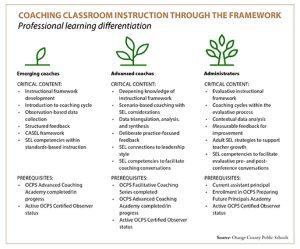
References
CASEL. (n.d.). Fundamentals of SEL. Casel.org/fundamentals-of-sel/
Categories: Career pathways, Coaching, Learning systems/planning, Personalization
Recent Issues
TAKING THE NEXT STEP
December 2023
Professional learning can open up new roles and challenges and help...
REACHING ALL LEARNERS
October 2023
Both special education and general education teachers need support to help...
THE TIME DILEMMA
August 2023
Prioritizing professional learning time is an investment in educators and...
ACCELERATING LEARNING
June 2023
Acceleration aims to ensure all students overcome learning gaps to do...



